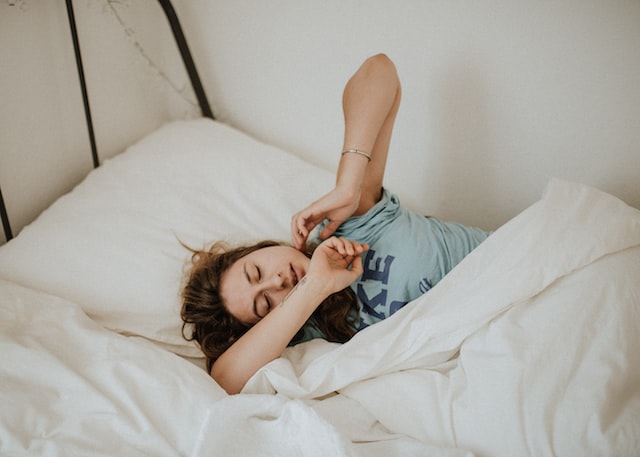
Sleep better, work better: Can lack of sleep make you selfish?
Lacking sleep can make us many things – reckless, careless, thoughtless, to name but a few. It can make us miss the smaller details, it can lower our judgment leading to poor decision making, and it can even make us feel cold!
We’re living in an age of chronic sleep deprivation. Blue-light emitting laptop screens have been around for over three decades now, more and more cities are choosing to stay lit up all night long, and many of us are guilty, through not much fault of our own, of staying up late doom-scrolling on social media. So, even if we could get better sleep, we might end up choosing not to.
But what if losing out on sleep could actually make you more selfish? We’ve not (officially) heard that one before, so let’s dive right in…
New study says skimping on sleep makes us selfish!
At shooksvensen we’re passionate about spreading the message on the importance of quality sleep, so we weren’t all that surprised to see the news that we are less likely to help others when we’ve been skimping on our sleep!
We’ve all dealt with road rage and queue cutting and suspected that these people may be habitually having a bad day, but it turns out that lack of sleep really does make us more self-centred and, in turn, less likely to consider the feelings of others.
So does that mean that exhaustion makes us less likely to care about others, even if we do take them into consideration? It’s hard to say. Some people’s thoughtful and kind behaviours are habits that are so deeply ingrained that they carry them out on autopilot, even in a sleep-deprived state.
Others may have to employ willpower and reasoning in order to behave more altruistically. We think
it’s this group that could really benefit from sleeping later. Could one more hour’s sleep a night
make all the difference? Well, it couldn’t hurt!
How can I get more sleep?
In modern life, it’s hard to get away from noise, blue light, and caffeine being added to seemingly every food and drink.
But the basics of a decent night’s sleep are always the same.
1. Cut out caffeine after 2pm.
You can learn more about this in our article on tea drinking, the benefits, and when to have your last cup of the day. Caffeine has a long half-life, meaning it will still be affecting you hours after last sip.
2. Invest in black-out curtains.
Remove all sources of light, if you can – buy thick, dark curtains. Even small sources of light disrupt our sleep more than you might realise, so get your room as dark as possible.
3. Minimise your screen time.
This one is far easier said than done, but try and get away from TV screens, laptops and your mobile phone an hour before bedtime. Blue light disrupts your circadian rhythm which is what controls the times that you fall asleep and wake up.
4. Get some gentle exercise before bed.
This means a relaxing walk, some light yoga, or stretching, not jumping jacks or sprinting! The goal is to tire yourself out without sending your adrenaline through the roof.
Once you’ve got these habits into place, you should find yourself feeling at least a bit more rested when you wake up in the mornings, which could then have a positive effect on your mood, and the way you end up interacting with others.
Conclusion
Shooksvensen are passionate about healthy living habits that lead to better overall wellness and peace of mind for the sake of being more attuned to others at work and being a great leader. If you are managing a team who may be struggling with stress and sleep deprivation post-pandemic, take a look at the programmes we have on offer. Created for individuals who want to improve their working lives, and teams who want to collaborate better, our Rewired to Relate program emphasises self-care as a means to working better with others.
Image Source: Unsplash
Preventing burnoutRisk – avoid or embrace?